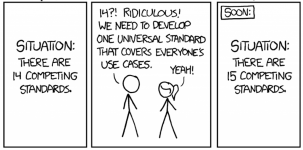As a self admitted "radio geek" and long time public safety provider I will tell you that most people in public safety are not "radio geeks." Some are, the majority are not. Most are only interested in "Push to talk, release to listen." They'll know which channel they spend most of the radio time on and a few others as well. Once you get into switching zones, eyes start to glaze over.
Our ambulances had scanners installed and the majority of my co workers never turned them on. For that matter the radio shop programmed them, but didn't do a complete job at it. I spent some time here and there reprogramming scanners. That included for supervisors and a couple of command staff.
The radio is supposed to be a tool to help them do their jobs, not their job itself.
Boston Fire Department fire alarm operators will give out channel assignments when BFD apparatus is going out of the city on mutual aid. They will tell the unit to go to "Zone B, Channel 9" and that's where they go. They don't say "Go to Quincy Fire Channel 2" because without looking at the chart of zones and channels, the officer will spend time trying to figure out which channel to go to.
That's not because they are dumb, it's because they aren't all that interested in how the radio does what it does.
It's likely going to fall on dispatch to do a lot of what you would think the field operators would do.
1. Having the best Radio System in the world is useless unless you train all users on HOW WHEN AND WHY to use the system.
2. Having all Radio Shops involved programming options and all possible radio channels programmed in all radios.
3. Repeat number 1 TRAIN ALL USERS on the HOW WHEN AND WHY use of the RADIO SYSTEMS.
4. This should be well covered in all Agency SOG's or SOP's.


